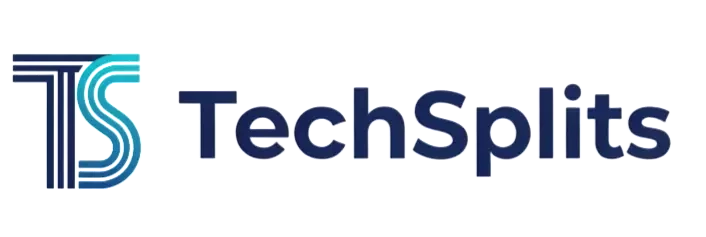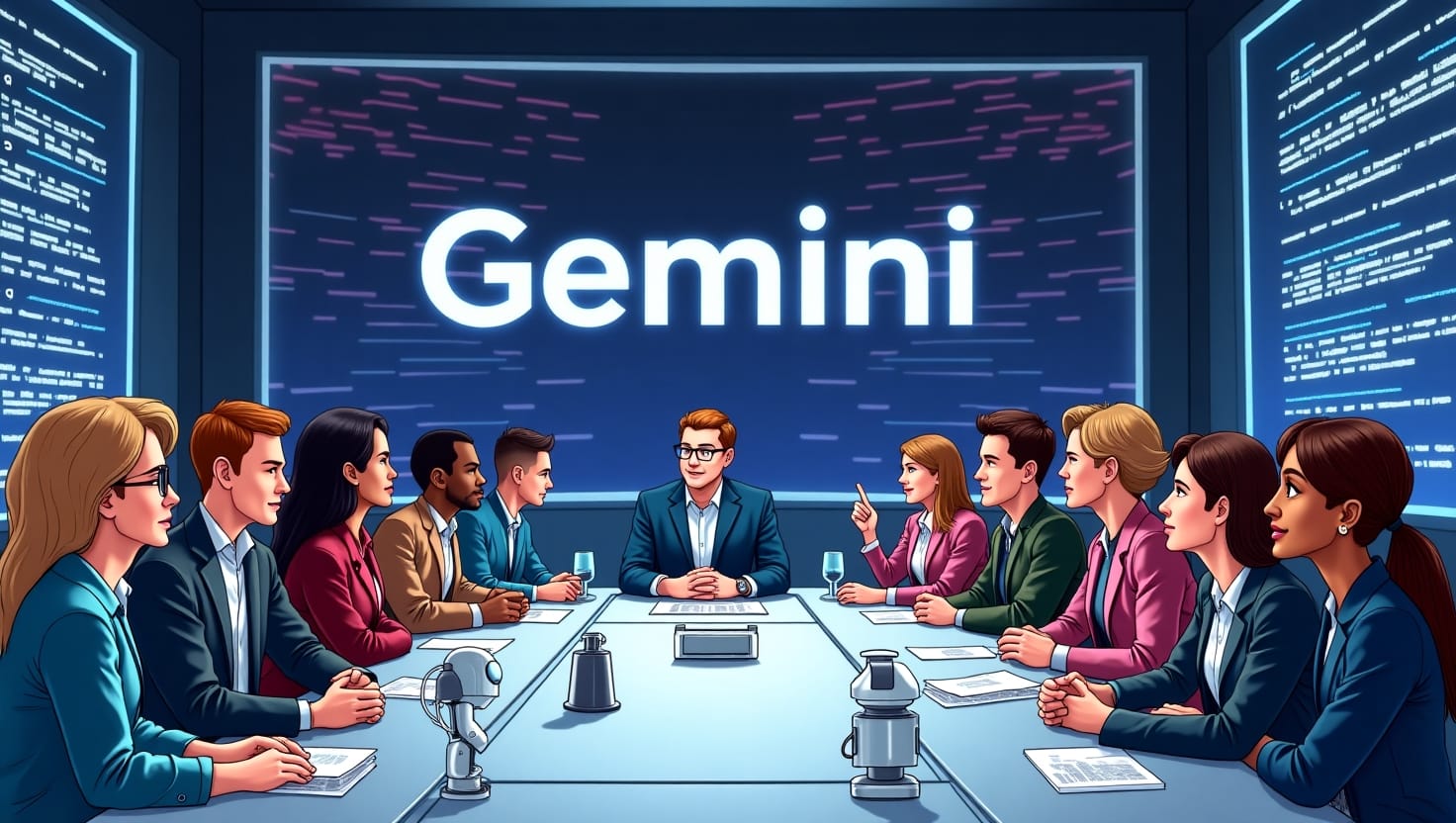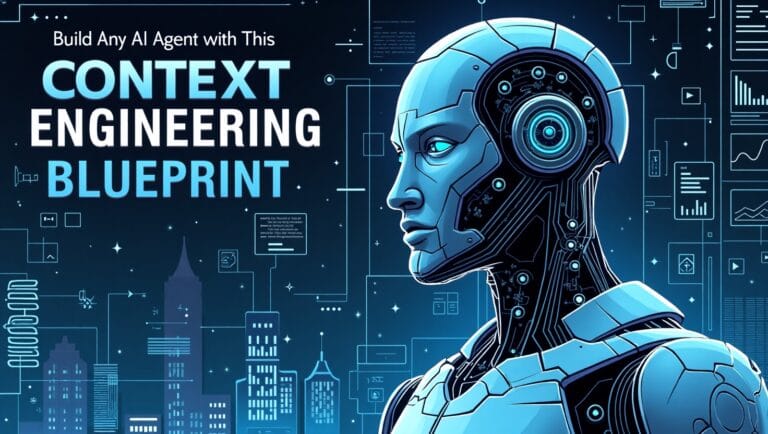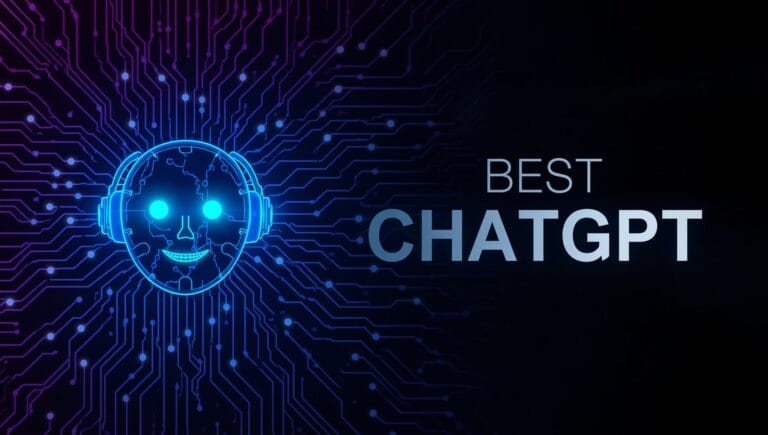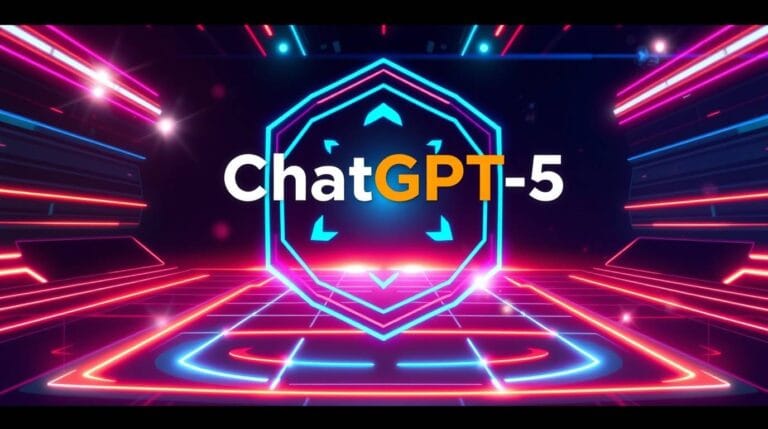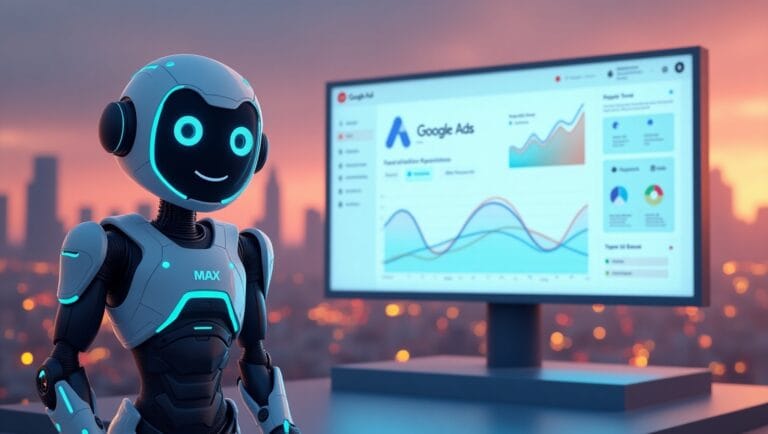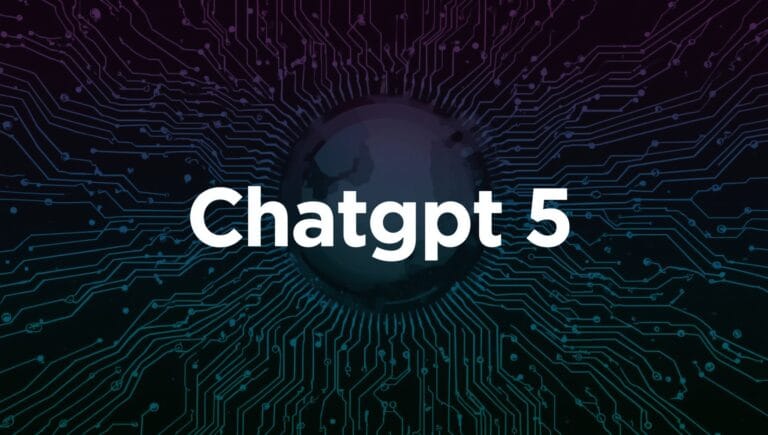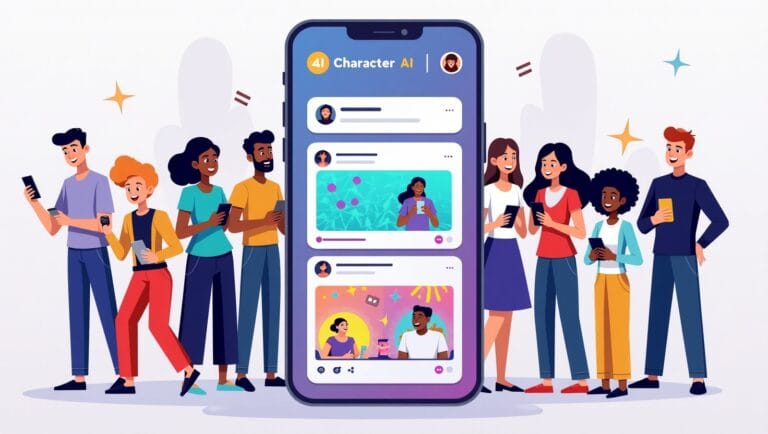Google Launches Gemini DeepThink AI: A New Era of Multi-Agent Reasoning
Introduction
Google has once again raised the bar in artificial intelligence. The tech giant recently announced its most advanced AI system to date: Gemini DeepThink AI, a multi-agent reasoning model that pushes the limits of how machines can work together to solve complex problems.
While OpenAI’s GPT-4o and Anthropic’s Claude continue to make waves, Google’s DeepThink introduces a fundamentally new approach—collaborative AI agents that can reason together, challenge each other, and evolve dynamically to achieve better results.
But what exactly is Gemini DeepThink? Why is the “multi-agent” aspect such a big deal? And how does it impact the future of search, productivity, and human-machine collaboration?
Let’s break it down.
What Is Gemini DeepThink AI?
Gemini DeepThink AI is Google’s latest evolution in the Gemini AI family. Unlike traditional large language models (LLMs) that operate as a single brain, DeepThink uses multiple AI agents that interact, question, validate, and reason together in real time.
This architecture mimics how humans solve problems in teams. Instead of relying on one model to process everything, Gemini DeepThink splits complex tasks across a group of specialized AI agents, each designed to handle a specific type of reasoning or knowledge.
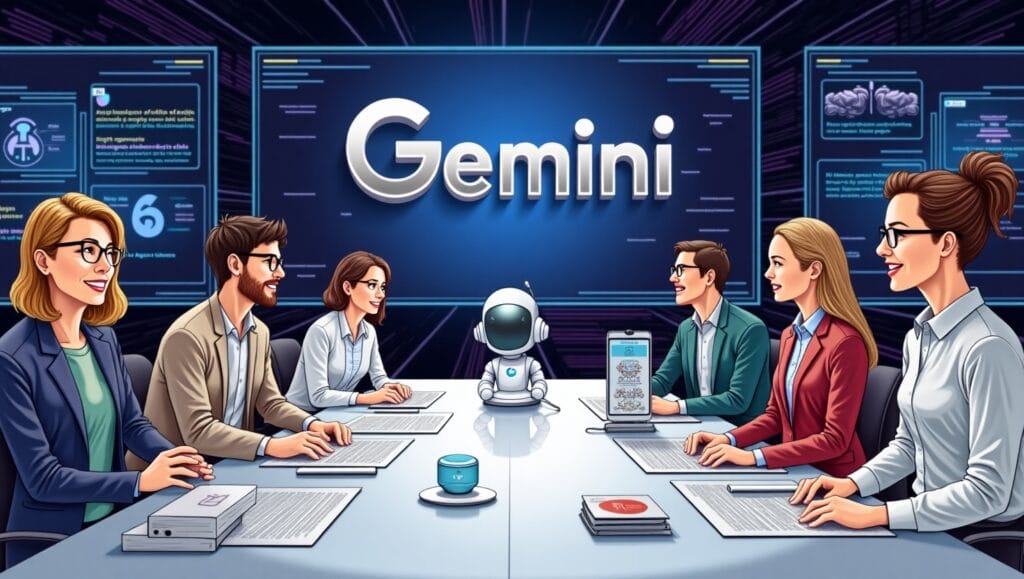
Key Features of Gemini DeepThink AI
- Multi-Agent Reasoning
Multiple agents debate, validate, and collaborate on a single prompt. This improves factual accuracy, creativity, and logical outcomes. - Contextual Division of Labor
Each agent is assigned a specific type of reasoning—math, logic, language, memory, or even emotional understanding—and works on that part only. - Self-Correction and Cross-Validation
Agents can fact-check each other and discard weak arguments or wrong information. This reduces hallucinations common in LLMs. - Real-Time Coordination
All agents communicate in milliseconds, allowing seamless conversations and output generation, just like a team of humans brainstorming. - Scalability
DeepThink can scale its agent count based on task complexity—from a few agents for quick answers to dozens for large-scale projects.
Why Multi-Agent Reasoning Is a Game-Changer
Traditional AI models like ChatGPT or Gemini 1.5 operate as monolithic models—a single brain that has to “know everything.” While powerful, this structure has limits in terms of reasoning depth and error correction.
Gemini DeepThink changes the paradigm. Think of it like this:
- One AI = A genius working alone
- DeepThink = A team of smart specialists debating, validating, and improving each other’s ideas
This collaborative approach makes it ideal for:
- Complex scientific research
- Legal and financial analysis
- Multi-step logical reasoning
- Strategy planning
- AI-assisted coding and debugging
- Creative brainstorming across multiple domains
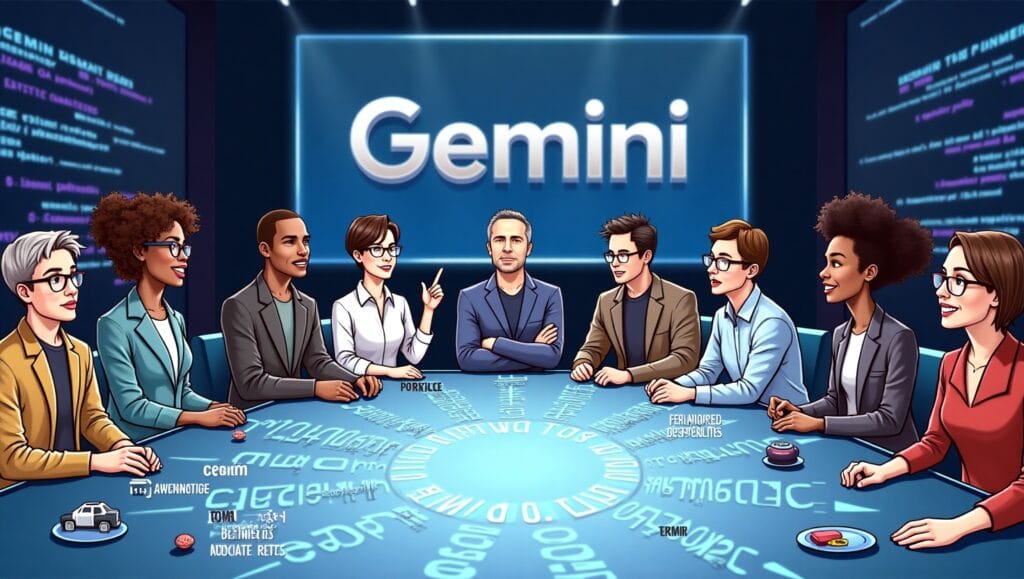
How Gemini DeepThink Works Behind the Scenes
While Google hasn’t released full technical specs yet, early research suggests DeepThink runs on an evolved version of Gemini 1.5 Pro, combined with agent-based coordination modules.
Each agent has access to:
- Shared Memory Space: So they can read what others are saying or doing
- Role-Based Reasoning Models: Math agents, planning agents, vision agents, language agents, etc.
- Error Detection Algorithms: Agents are trained to find and challenge flaws in other agents’ responses
- Natural Language Coordinator: A controller AI that synthesizes the best answer from the agent conversation
This coordination ensures that the final response isn’t just the output of one model—it’s the collective best guess of many smart AIs.
Use Cases for Gemini DeepThink
Gemini DeepThink opens up a massive range of possibilities. Some early use cases being explored include:
🧠 Scientific Research
DeepThink can simulate expert panels to solve scientific problems faster—running multiple hypothesis tests at once.
📊 Business & Finance
Multiple agents can analyze reports, news, trends, and risks to generate detailed strategic advice or investment recommendations.
💡 Creative Work
Writers and marketers can collaborate with agents focused on tone, grammar, emotional impact, and structure—getting more well-rounded content.
🧮 Math & Logic
Instead of relying on a single math model, DeepThink can cross-check calculations, run simulations, and catch logical fallacies in real time.
🤖 Advanced Coding
Programmers can describe complex apps or functions and let the agents debate the best logic, architecture, and code flow.
How Gemini DeepThink Compares to Other AI Models
| Feature | Gemini DeepThink | ChatGPT (GPT-4o) | Claude 3 | Mistral |
|---|---|---|---|---|
| Model Type | Multi-agent | Single-agent | Single-agent | Transformer |
| Reasoning Depth | Very High | High | High | Medium |
| Self-Correction | Collaborative | Limited | Some | Minimal |
| Use Case Flexibility | Dynamic | Wide | Wide | Limited |
| Speed | Slightly Slower | Fast | Fast | Very Fast |
| Ideal For | Research, Problem-Solving | General Use | Document Understanding | Code & Lightweight Tasks |
Implications for AI in 2025 and Beyond
With the release of Gemini DeepThink, Google is clearly aiming to lead the next phase of AI evolution: collaborative intelligence.
Just like businesses rely on team dynamics for innovation, AI systems will now rely on internal dialogue and disagreement to improve outcomes.
This could impact:
- Search Engines: AI answers will be multi-layered, verified, and more trustworthy
- Healthcare: Multiple agents evaluating symptoms, medical history, and treatment options
- Education: Dynamic tutoring systems that adapt reasoning methods to individual students
- Enterprise Software: Smart assistants for every department, communicating like real coworkers
Privacy and Ethical Considerations
As AI becomes more powerful, concerns also rise:
- Will DeepThink agents respect user privacy in collaboration?
- Could conflicting agents produce unpredictable results?
- Will this make AI harder to audit and understand?
Google has stated that safety layers and ethical testing are being embedded at every level of the DeepThink architecture. Still, multi-agent AI introduces new challenges that researchers and policymakers must address.
When Will Gemini DeepThink Be Available?
While the technology has been unveiled, Gemini DeepThink is still being tested internally and with select partners.
Google hinted at:
- Developer access via Gemini API later this year
- Enterprise use cases through Workspace and Google Cloud AI
- Public rollout possibly in 2026, integrated into Android and Search
Until then, AI researchers, app developers, and curious users will have to wait and watch.
Final Thoughts
Gemini DeepThink isn’t just another AI—it’s a vision of how artificial intelligence can work together, reason deeper, and deliver better outcomes. Google is quietly shaping a future where machines think not like individuals, but like teams of experts working in harmony.
As AI continues to evolve, multi-agent reasoning may soon become the gold standard, and Gemini DeepThink might just be the blueprint.
